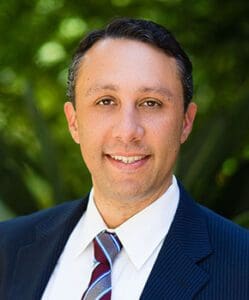As people grow older, they often become susceptible to many forms of abuse and exploitation. Though physical, mental, and sexual abuse of elderly people may come to mind immediately, financial abuse of elders is also, unfortunately, very common.
In addition to unscrupulous scams or identity theft by strangers, the sad truth is that often seemingly well-meaning caretakers, family members, or friends may use undue influence to take charge of the elder’s finances or influence their decisions and proceeds to misuse assets for their own benefit.
The experienced Bellingham financial elder abuse attorneys at Walton Law, APC regularly litigate against financial abusers of the elderly and have recovered millions of dollars for clients through their work in civil and probate courts.
Some elders may simply be naïve or overly trusting of caregivers, family, neighbors, and even strangers. Others may have impaired judgment due to decreasing mental and physical capacity – hearing loss, dementia, diseases, or even prescribed medications that alter their mental state. Still others may be struggling to keep their independence and thus too proud to accept help or heed sound advice.
Whatever their unique circumstances, as a result they may take unwise actions, such as:
- Signing legal or financial documents to their detriment;
- Entering contracts;
- Succumbing to scams;
- Providing personal information that can be used to steal their identity;
- Changing their will;
- Giving away valuables or money; and/or
- Agreeing to questionable investment deals that can threaten their savings.
Remedies Available
Government agencies may investigate and pursue criminal charges against those that commit financial elder abuse, which may result in fines or even imprisonment. In addition, victims or their loved ones may pursue civil claims against the perpetrator for compensatory damages, attorney’s fees and costs, and, under the California Financial Elder Abuse Statute, all other remedies otherwise provided by law. Other remedies may include punitive damages (on a showing of malice, oppression, or fraud), and/or treble damages in consumer fraud cases where:
- The perpetrator knew their conduct was directed towards a senior citizen;
- The perpetrator caused the senior citizen an income loss or substantial loss of property set aside for retirement, personal or family care or maintenance, or assets essential to the senior citizen’s health or welfare; and
- The senior citizen was substantially more vulnerable than other members of the public to the conduct because of age or impaired understanding and actually suffered substantial emotional or economic damage resulting from the conduct.
Furthermore, anyone who commits financial elder abuse is prohibited from benefiting from the victim’s estate under California probate law. A court can strip the abuser of any benefit they have previously received and disinherit them from any future expected benefits.
Signs of Financial Elder Abuse
The more quickly financial abuse of an elder is detected, the better the chances of stopping further financial damage and recovering the victim’s assets. Some abuse can be obvious—such as outright stealing—but often financial abuse of elders is more subtle and centers around deception and coercion. Common indicators may include:
- Theft of money, financial documents, or property;
- Substantial increase in wealth or lifestyle spending of an elder’s caregiver;
- Credit card fraud;
- Identity theft;
- Forging checks or writing checks made out to “cash”;
- Unexplained or sudden changes to an elder’s last will and testament;
- Transfers of deeds to property or titles to assets;
- Unusual account withdrawals in nature or in amount;
- An elder’s surrender of oversight of their financial affairs or bestowing power of attorney; and/or
- Overdue bills and unpaid expenses despite an elder’s demonstrated sufficiency of funds.
Speak to An Experienced Financial Elder Abuse Attorney Today
While it is best to take proactive measures to protect yourself or a loved one, unfortunately not all abuse will be prevented before it occurs. If you or an elder loved one has been harmed as a result of another’s exploitation or financial abuse, it is important to speak with an attorney well-versed in handling claims of financial elder abuse.
The experienced, award-winning attorneys at Walton Law, APC regularly litigate against financial abusers of the elderly and have recovered millions of dollars for clients through their work in civil and probate courts. We provide small firm attention while achieving results you would expect from a larger firm, and we are dedicated to vigorously advocating for our clients and securing the best possible results for each case.
Contact us today to set up a free, no obligation consultation. Let our experienced attorneys review your unique case and give you the guidance you need to get the compensation you deserve. There is no fee unless we win your case. To schedule your initial consultation, call us 24 hours a day, 7 days a week at (866) 338-7079 or fill out our online contact form to get started.
